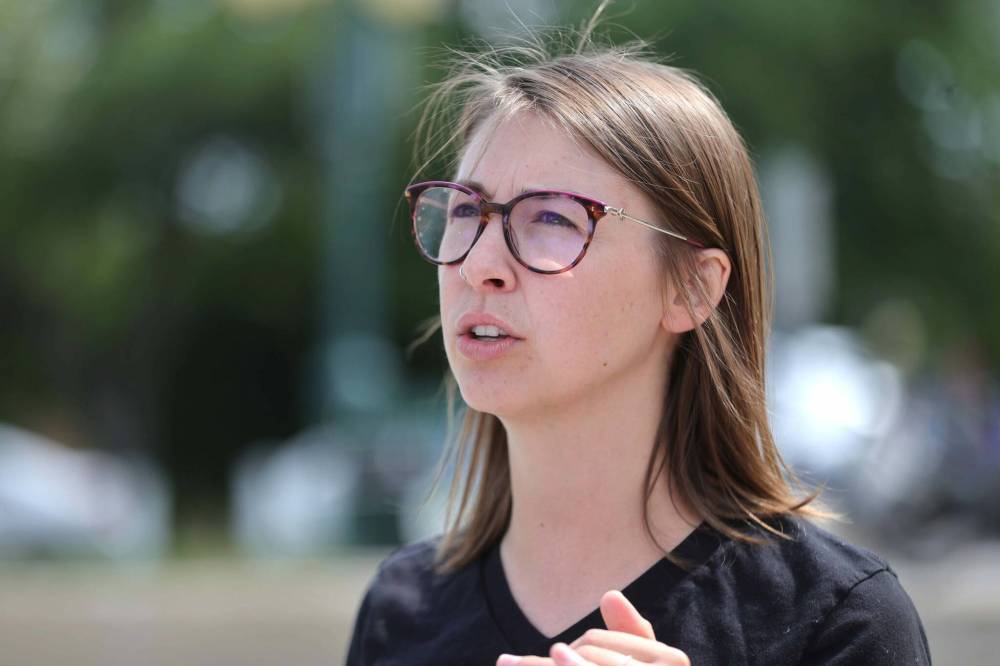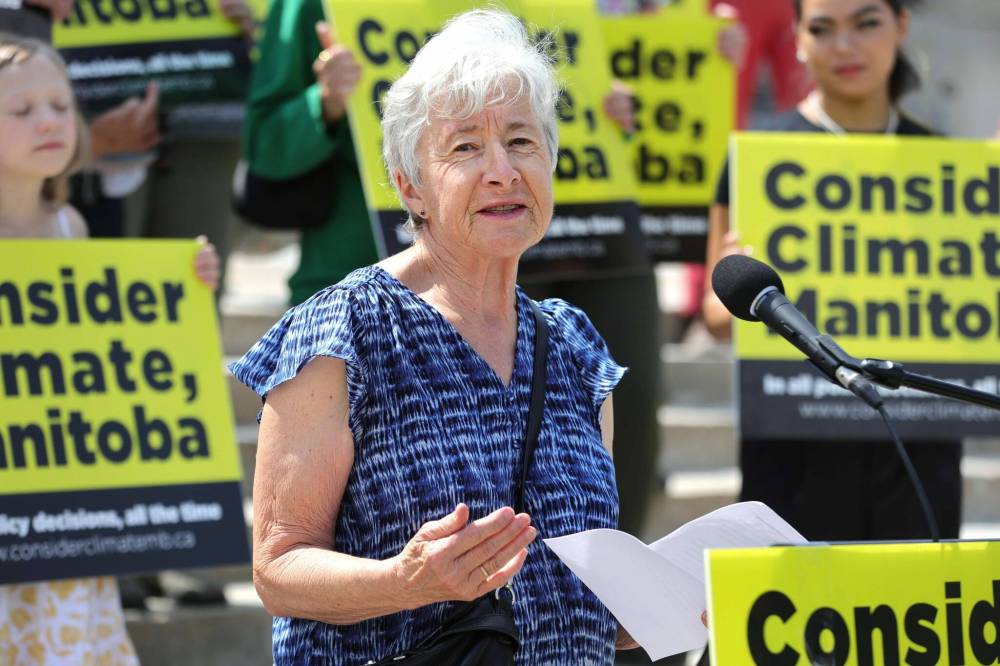Advocates push for climate agenda in Manitoba election
Advertisement
Read this article for free:
or
Already have an account? Log in here »
To continue reading, please subscribe:
Monthly Digital Subscription
$0 for the first 4 weeks*
- Enjoy unlimited reading on winnipegfreepress.com
- Read the E-Edition, our digital replica newspaper
- Access News Break, our award-winning app
- Play interactive puzzles
*No charge for 4 weeks then price increases to the regular rate of $19.00 plus GST every four weeks. Offer available to new and qualified returning subscribers only. Cancel any time.
Monthly Digital Subscription
$4.75/week*
- Enjoy unlimited reading on winnipegfreepress.com
- Read the E-Edition, our digital replica newspaper
- Access News Break, our award-winning app
- Play interactive puzzles
*Billed as $19 plus GST every four weeks. Cancel any time.
To continue reading, please subscribe:
Add Free Press access to your Brandon Sun subscription for only an additional
$1 for the first 4 weeks*
*Your next subscription payment will increase by $1.00 and you will be charged $16.99 plus GST for four weeks. After four weeks, your payment will increase to $23.99 plus GST every four weeks.
Read unlimited articles for free today:
or
Already have an account? Log in here »
Hey there, time traveller!
This article was published 12/07/2023 (871 days ago), so information in it may no longer be current.
Manitobans, regardless of their politics, care about climate change and want leaders to make it a priority in the Oct. 3 election, Manitoba’s Climate Action team said Wednesday.
The group launched “Consider Climate, Manitoba,” a campaign that asks politicians to integrate climate into all policy, budget and legal decision-making.
“At times, climate has become a divisive partisan issue that has led to polarization in communities,” said Bethany Daman, a member of the climate action team.
“I’m excited about the number of people from across party lines who are coming together on this campaign to work towards making Manitoba a healthier, more affordable and climate resilient place to live.”
A Probe Research poll this spring found three-quarters of Manitobans believe it’s important political leaders incorporate climate change into policy decisions. That belief was strongly held by approximately half of Winnipeggers, women, university graduates, people of colour and Manitobans with annual incomes under $50,000.
RUTH BONNEVILLE / WINNIPEG FREE PRESS “I’m excited about the number of people from across party lines who are coming together on this campaign to work towards making Manitoba a healthier, more affordable and climate resilient place to live,” said Bethany Daman.
“The health care, affordability and climate crises are intrinsically linked,” Daman said.
As more Manitobans experience the effects of these co-concurrent crises, the desire to see politicians commit to climate action is bringing people from all walks of life together.
The campaign invites volunteers to door-knock, distribute lawn signs and pamphlets, educate each other about climate solutions and contact local candidates to demand commitments around greenhouse gas emission reduction, green job creation and climate adaptation. It has drawn approximately 50 volunteers and 500 supporters.
Several volunteers took to the microphone during the launch to share why they believe climate action is key to safeguarding the province’s future — and securing their votes.
“I want my child to have a future where climate is being thought about and answered, because I think that will impact the world they live in,” said Adrian Werner, who is expecting a newborn this fall.
RUTH BONNEVILLE / WINNIPEG FREE PRESS Retired public health nurse Jean Clipsham emphasized “the biggest threat to everyone’s health and well-being is climate change.”
Retired public health nurse Jean Clipsham emphasized “the biggest threat to everyone’s health and well-being is climate change,” adding that “unless we immediately begin to reduce greenhouse gas emissions and adapt to climate change, the health of everyone on this planet (will) be adversely affected.”
Manitoba is one of just two provinces (alongside Alberta) that emits more greenhouse gas pollution today than baseline levels set in 2005. The province spends more than $2 billion annually importing natural gas predominantly used in the emissions-heavy building heating and transportation sectors.
Thick wildfire smoke and sweltering heat waves have become synonymous with a Manitoba summer.
Dave Elmore, a grandfather who is volunteering with the campaign, noted climate impacts are “impossible to ignore.”
Despite the growing sense of urgency, concerned voters say they’ve yet to see any political party propose a plan to claw back emissions, improve affordability and safeguard residents’ health.
“Everybody is worried about this, everybody is concerned, so why is climate not a key piece of the election campaigns for these governments?”–Josiah Neufeld
“Everybody is worried about this, everybody is concerned, so why is climate not a key piece of the election campaigns for these governments?” said Josiah Neufeld, who attended the event.
“Whichever government puts forward a robust plan is the government I’m going to vote for.”
As the election approaches, the Climate Action team plans to ask candidates five questions, ranging from policies to reduce greenhouse gas emissions in transportation, agriculture and buildings, plans to adapt to weather extremes like floods, fires and drought and policies to generate jobs for the green economy.
So far, Daman said, politicians haven’t warmed to the idea of integrating climate change into thei rcommitments on topics such as fiscal responsibility and health, but she hopes understanding “the very human impacts” of climate change on voters will help move the needle.
julia-simone rutgers@freepress.mb.ca

Julia-Simone Rutgers is the Manitoba environment reporter for the Free Press and The Narwhal. She joined the Free Press in 2020, after completing a journalism degree at the University of King’s College in Halifax, and took on the environment beat in 2022. Read more about Julia-Simone.
Julia-Simone’s role is part of a partnership with The Narwhal, funded by the Winnipeg Foundation. Every piece of reporting Julia-Simone produces is reviewed by an editing team before it is posted online or published in print — part of the Free Press‘s tradition, since 1872, of producing reliable independent journalism. Read more about Free Press’s history and mandate, and learn how our newsroom operates.
Our newsroom depends on a growing audience of readers to power our journalism. If you are not a paid reader, please consider becoming a subscriber.
Our newsroom depends on its audience of readers to power our journalism. Thank you for your support.






